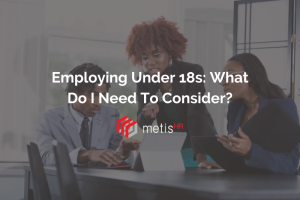
Employing Under 18s In My Business: What Do I Need To Consider?
There are many businesses in which employing under 18s can bring huge advantages, and many business owners want to be able to employ young people
Articles

There are many businesses in which employing under 18s can bring huge advantages, and many business owners want to be able to employ young people
Following the successful rollout of vaccines against the COVID19 virus, we have been asked by clients, what should employers do when employees have been vaccinated
Since the pandemic hit the UK earlier this year many employees have worked from home and it seems some employers have found issues with home
Dr Tok Hussain (Consultant Occupational Physician) from Healthwork Ltd writes a guest blog for us this week discussing the benefits of Occupational Health to employers.
Working out how to cope with COVID at work this winter isn’t easy because the data is conflicting. Are we going to have more deaths?
The Working Time Regulations set out how much people are allowed to work on average. According to the government website, gov.uk: ‘You can’t work more
Metis HR specialises in HR matters but we are sometimes asked how to prepare for a Health and Safety Workplace Inspection. We believe that the
Categories
Copyright © 2020 Metis HR Ltd. Registered Company No: 07554123. All Rights Reserved
Website by Thomas Cole Digital